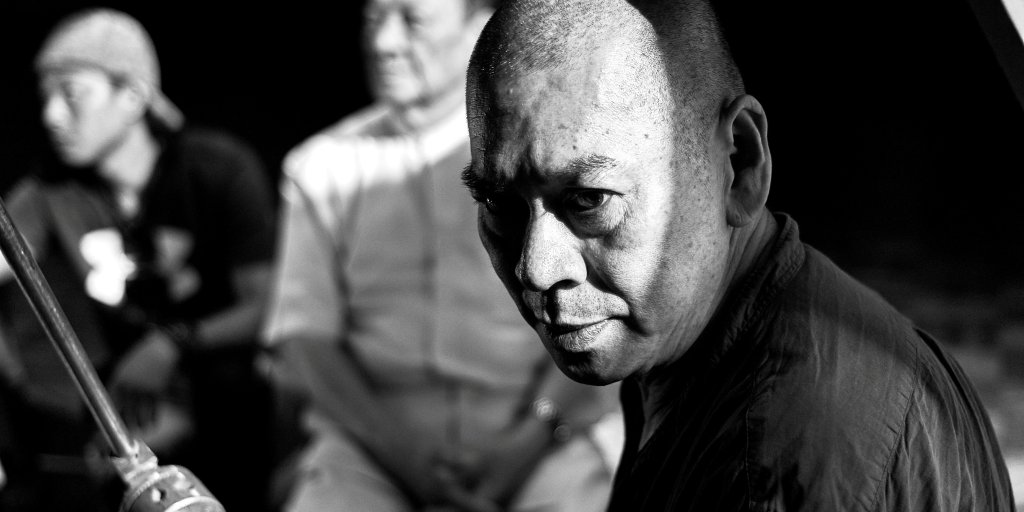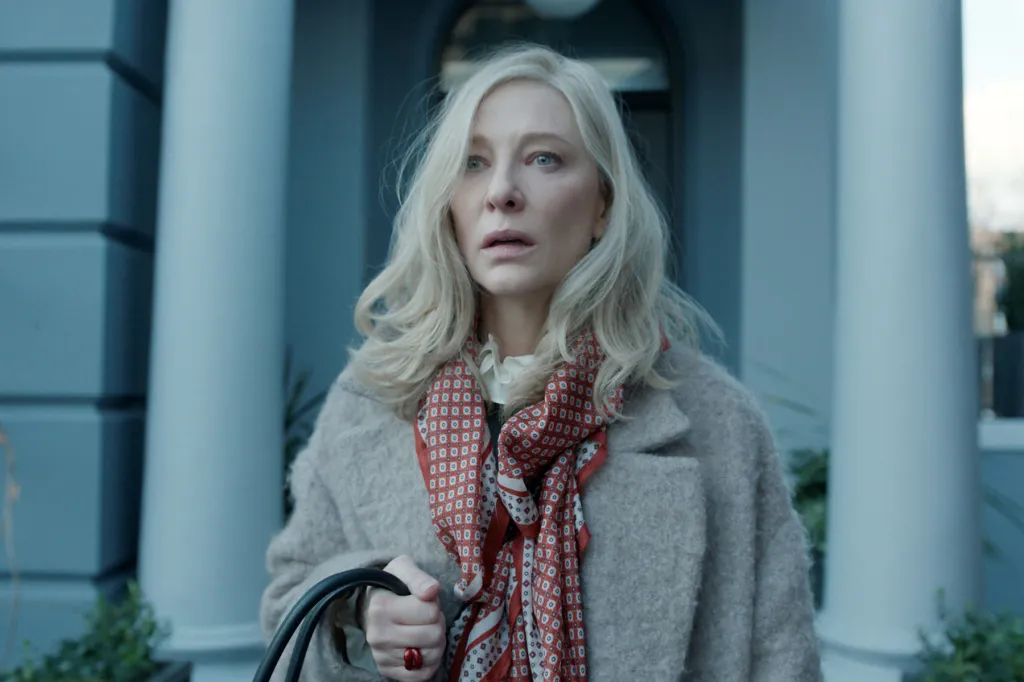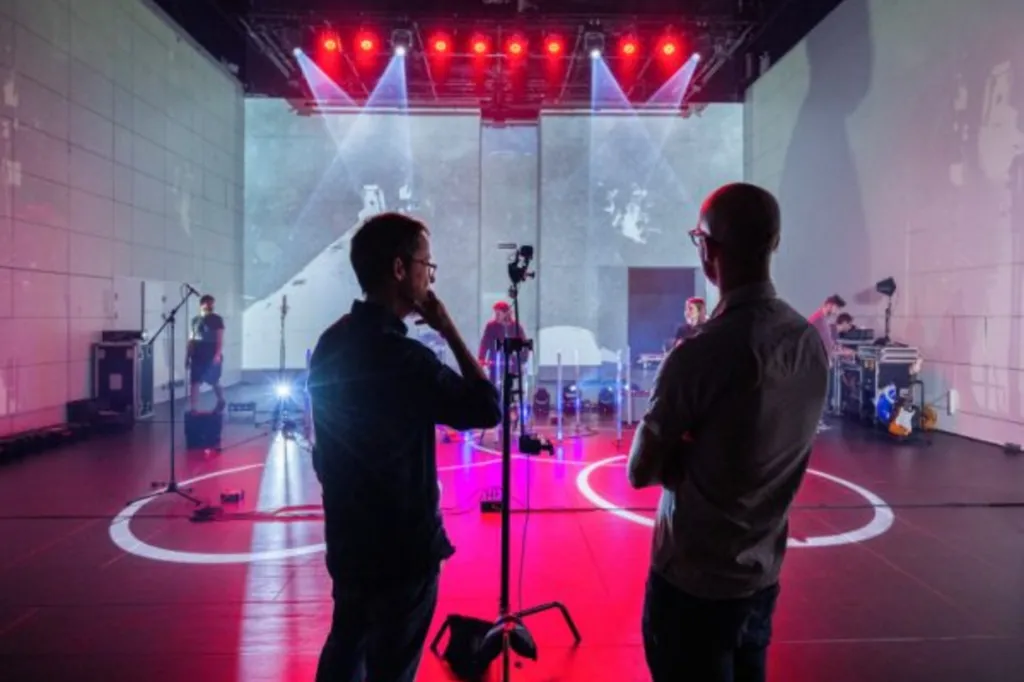Screening across the universe at GOMA
Yes, the art is spectacular but, wait, there’s more, as QAGOMA’s APT11 also comes with a killer cinema program – and it’s mostly free.

If you’re heading along to the 11th Asia Pacific Triennial of Contemporary Art (APT11) at QAGOMA, put aside some time to go to the movies. There’s an exciting array of films screening at GOMA’s Australian Cinematheque as part of the program.
APT is a highlight for art lovers and until May next year an accompanying free film program will feature flicks that include new and innovative directions in cinema.
Taiwan-based Malaysian filmmaker Tsai Ming-liang’s works are screening until December 22. He’s one of the most celebrated directors of the second wave of New Taiwanese Cinema.
Amanda Slack-Smith, curatorial manager of Australian Cinematheque, says Ming-Liang’s works are part of the 1980s period of Taiwanese filmmaking where the fantastical started to give way to the exploration of everyday life, the working class and the critiquing of power structures.
“In 1987, the government announced the end of martial law, so there was a growing freedom in Taiwan,” Slack-Smith explains. “This saw the rise of Ang Lee, who went on to make Crouching Tiger, Hidden Dragon and Brokeback Mountain, and (the rise of) Ming-liang, in the wake of political change. Ming-liang’s specialty is slow cinema, leaning into minimal dialogue and long takes… where you can immerse yourself.”
You might like
Slack-Smith recommends Rebels of the Neon God, which won the Golden Lion at the Venice Film Festival, and Bu san (Goodbye, Dragon Inn), saying of the latter: “It’s very poignant, about a rundown cinema about to close and the characters who move in and out of this cinema. It’s been declared one of the best films of the past 125 years.” That’s quite a recommendation.
It’s probably safe to say most Australians haven’t seen an Indonesian film, let alone by a female director.
Indonesian director Kamila Andini will be in Brisbane for an “In Conversation” segment at GOMA on February 8, concluding a program of her work that begins January 11.
“Andini, who studied in Melbourne, foregrounds stories of women and the challenges they face in Indonesian society,” Slack-Smith explains, recommending Sekala Niskala (The Seen and Unseen), a film about the deep bond between twins, and Yuni, the story of a young woman resisting expectations about marriage. (Andini also has a series, Cigarette Girl, on Netflix.)
Subscribe for updates
Another program, Future Visions (January 10-16), Slack-Smith describes as “a collection of stories that are compelling, imaginative and fantastical, not necessarily grim or bleak”. “It’s also about exploring a future through the lens of other cultures,” she says.
One of the works is Concrete Utopia, the 2023 South Korean film from Um Tae-Hwa about an earthquake destroying Seoul, and the residents of an apartment building left standing trying to survive. Stars include the well-known (if you’re a Korean drama lover) Park Seo-jun and Lee Byung-hun. Another highlight is Makoto Shinkai’s magical anime feature Suzume, in which a giant interdimensional worm must be stopped.
Children of Independence: The Rise of Central Asian Cinema (February 12-March 19) showcases recent developments in filmmaking from Central Asian countries such as Uzbekistan and Kyrgyzstan – definitely not the sort of films we usually see in our cinemas.
“These films don’t have high profiles or high marketing budgets and you get vastly different perspectives on life,” Slack-Smith says. “They also help us to reflect on our own culture and are quite poignant, beautiful and relatable.”
Some choices you might want to check out are Adilkhan Yerzhanov’s Sary mysyq (Yellow Cat) 2020, an irreverent depiction of the wild west of Kazakhstan’s rural steppe; and Esimde (This is What I Remember) by director Aktan Arym Kubat, an arresting vision of the power of familial love from Kyrgyzstan and Japan.
The final program (March 28-May 11) features the films of Japanese filmmaker Ryusuke Hamaguchi, including his Academy Award-winning Drive My Car from 2021, and his rarely seen Tōhoku Trilogy documentaries, filmed in the aftermath of the 2011 earthquake and tsunami.
GIFT is a very special event as part of Hamaguchi’s program in late April.
The screening includes a live music accompaniment by composer Eiko Ishibashi, who also wrote the Oscar-winning soundtrack for Drive My Car. She will be at GOMA to perform at the screening of GIFT, which uses footage shot for the film, Evil Does Not Exist (which is screening in March and April), while remaining dialogue-free and edited specifically to be accompanied by the live performance.
Slack-Smith describes it as “atmospheric electronic music and an intimate, exceptional experience”. This event, unlike most of the free program, is ticketed.
There will also be an “In Conversation” with Ishibashi and producer and regular Hamaguchi collaborator Satoshi Takata, on April 27. Brisbane composer Lawrence English will moderate.
See the entire APT cinema program and book for ticketed events on the website.

